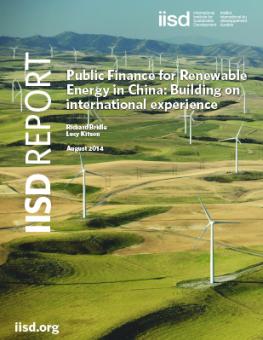
Public Finance for Renewable Energy in China: Building on international experience
The Chinese government has responded to the challenge of increasing energy consumption and environmental pollution with ambitious targets for renewable energy generation; 15 per cent of primary energy is to be generated from renewable sources by 2015.
This report discusses the trends in renewable energy investment, the role of public finance in the renewable energy industry, the impact of renewable energy subsidies and the international experience of raising revenues from carbon pricing mechanisms to promote renewable energy.
The international context is of direct relevance to policy making in China as it continues plans to develop fiscal instruments that will provide public support to renewable technologies, including wind energy, hydro-electric generation and solar photovoltaic (PV) installations.
Participating experts
You might also be interested in
Heatwaves to hit China once every 5 years as global extreme weather events multiply, study finds
Record-breaking heatwaves that have scorched North America, Europe and China are set to worsen in future unless the world stops burning fossil fuels, according to a study by the World Weather Attribution (WWA) academic initiative.
Are Countries Walking the Talk on Cutting Carbon?
In the race against climate change, increasing ambition over time is key. But revised commitments from parties to the Paris Agreement lack two critical components of ambitious climate action.
Doubling Back and Doubling Down: G20 scorecard on fossil fuel funding
This study tracks, for the first time, each G20 country's progress on ending support for fossil fuels—ranking their transparency, commitments, and financial support to oil, gas, and coal.
Health Co-Benefits from NDC Implementation in China
This report summarizes the policy efforts that the country is undertaking to meet its NDC targets and the related expected health co-benefits, based on recent scientific literature. It compares public budget allocations to health, climate change-related measures and subsidies to fossil fuels.